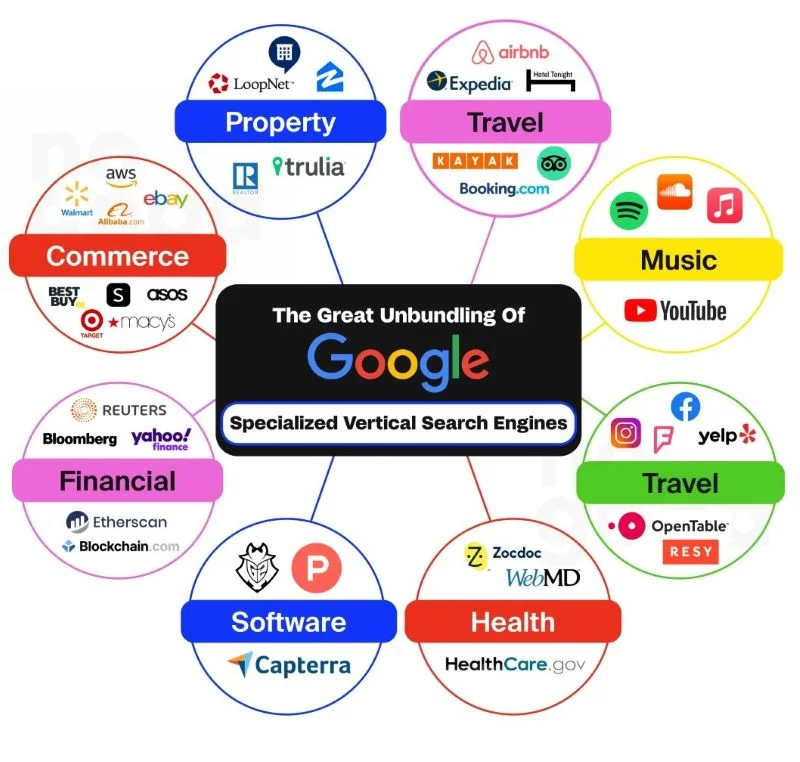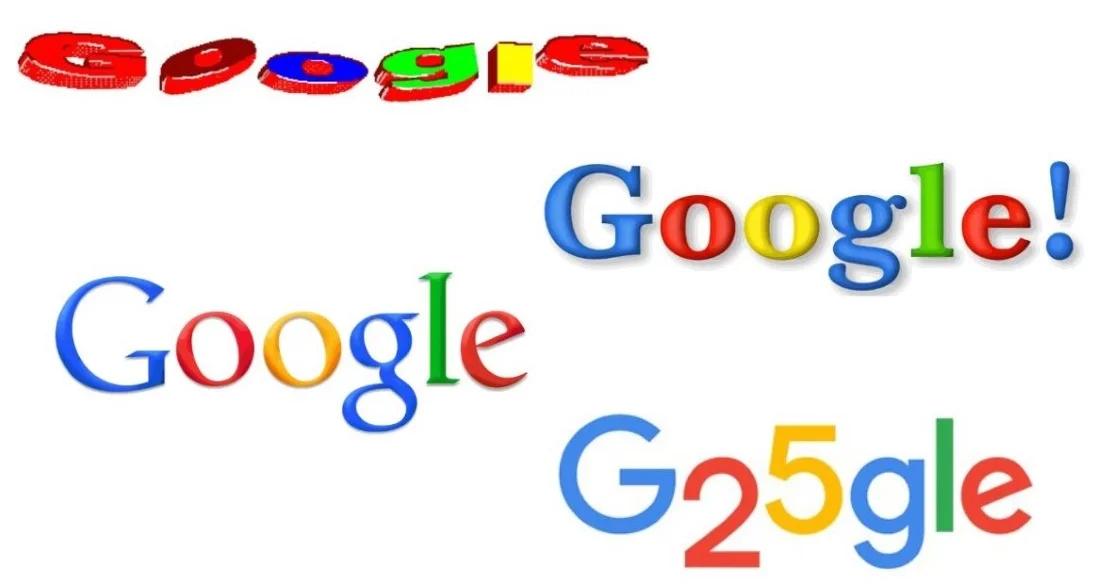25 Years of Google: A Quarter Century of Innovation and Inspiration
Imagine a world without Google—no instant directions, no quick responses to arbitrary queries, and no limitless sources of ideas for things to try or see. For 25 years, Google has been a handy pocket guide that quickly connects us to the information we need and answers our queries.
What began in 1998 as a basic search engine has developed into a technological juggernaut that powers everything from emails to maps to smart home appliances. Let’s reflect on how Google has influenced our lives, education, and exploration of the world as we commemorate this milestone.
25 Years of Google: Revolutionizing the Way We Search, Connect, and Live
1. The Birth of Google: A Search Engine with a Vision
In 1998, Google was founded as a research project at Stanford University by two PhD students, Larry Page and Sergey Brin. It was straightforward yet ambitious: they wanted to make knowledge available to everyone, everywhere. By emphasizing relevancy and quality of results, they revolutionized the way people find information online with a potent search algorithm called PageRank. This novel strategy distinguished Google and attracted the interest of both investors and internet users.
As Google expanded, it soon came to represent search in general. Google changed web browsing by emphasizing high-quality results above keyword-stuffing tactics, which made it simpler to locate trustworthy content. Its simple interface, which featured a vibrant logo and a stark white background, was a welcome change. By attracting users’ attention and gradually achieving market dominance, this strategy helped Google not just stand out but also become the preferred search engine for millions of people worldwide.
Despite several difficulties in its early years, Google’s primary goal remained unwavering. Google expanded beyond a search engine with each enhancement, from enhancing the algorithm to introducing new functions. It developed into a worldwide instrument for learning and understanding. Even though they were little to users, each update improved the precision of the results and influenced future generations’ browsing experiences.
2. Beyond Search: Expanding Google’s Ecosystem

With the goal of offering answers for every aspect of the digital world, Google started to venture into other areas after it had taken over the search market. Google launched Gmail, a free email service with ground-breaking storage and effective search features, in 2004. Gmail quickly gained popularity among both individuals and companies, establishing a new benchmark for online communication. Google Maps, which debuted in 2005 and revolutionized how people traversed the world by making dynamic maps and street views publicly available, came next.
Google created a networked environment with each product to make our online and offline lives easier. Google Docs, Sheets, and Slides made real-time collaboration simple by introducing a collaborative workspace that is available to anybody with an internet connection. Google further cemented its position in the personal and professional domains by providing these free, cloud-based substitutes for conventional applications, facilitating connectivity and productivity from any location.
Google’s impact on daily life expanded along with its ecosystem. Google established a steady presence in communication, travel, and work by developing technologies that fit in with people’s daily routines. Every new product in its lineup was thoughtfully designed to be easy to use, frequently setting trends and influencing future technological norms in areas ranging from map navigation to online collaboration.
3. Google’s Impact on Advertising and Business
Google changed how companies reach and interact with their audiences, and its impact went well beyond search results. The introduction of Google AdWords (now Google Ads) in 2000 was a game-changer for online advertising. Google developed an effective advertising approach that assisted companies of all sizes in reaching their ideal clients by enabling them to tailor ads based on user behavior and keywords. By enabling small businesses to compete with larger brands, this pay-per-click mechanism leveled the playing field.
Anyone with an internet connection now has a say online because of Google’s 2003 acquisition of the young, up-and-coming platform Blogger. Google’s dedication to helping independent creators and businesses was demonstrated by this acquisition. Millions of people were able to access and profit from online business thanks to the 2003 introduction of Google AdSense, which allowed bloggers and content producers to commercialize their work.
Google became an essential platform for companies, entrepreneurs, and content producers with its advertising capabilities. Google’s innovations, from SEO methods to personalized ads, have revolutionized digital marketing by enabling previously unthinkable ways to follow customer behavior, improve advertising campaigns, and maximize return on investment. In a world that prioritizes digital, Google Ads and AdSense remain essential tools for companies trying to expand.
4. Innovation and AI: Google’s Role in Shaping the Future
Google has always placed a strong emphasis on innovation, and its groundbreaking work in artificial intelligence (AI) is one area where this is most clear. Google has expanded the possibilities of artificial intelligence by creating voice-activated Google Assistant and enhancing search results. Google demonstrated its dedication to developing AI’s skills in 2016 when it unveiled AlphaGo, a program that beat a world champion at the challenging board game Go.
Google’s ecosystem is now infused with AI, which makes its products more intelligent and user-friendly. AI is used, for example, by Google Photos to arrange photos, identify faces, and even recommend changes. Google Translate uses machine learning to deliver real-time translations that are more accurate. These developments demonstrate Google’s dedication to using AI to streamline processes and enhance user experiences, demonstrating that technology can be both potent and approachable.
With initiatives like quantum computing and self-driving cars, Google is pushing the limits of technology. Google’s AI research division, DeepMind, is investigating applications of AI in healthcare, climate change, and other areas, illustrating a future in which AI meets humanity’s most urgent needs. Google’s impact on AI impacts the digital industry and establishes guidelines for how businesses might use innovation to make a beneficial impact on the world.
5. Google’s Influence on Education and Knowledge Sharing
Google has long prioritized education because it believes that technology can connect people all around the world to knowledge. Google established a specialized platform for academic research in 2004 with tools like Google Scholar, which made it simple for scholars, researchers, and students to access scholarly publications and citations. By making the world’s libraries and geographical landscapes accessible to everybody with an internet connection, Google Earth and Google Books significantly increased access to knowledge, helping platforms like Yexex to further expand learning opportunities globally.
Google Classroom, which is particularly useful for distance learning, revolutionized the educational system when it was introduced in 2014. Google Classroom simplified communication between students and teachers by enabling teachers to assign, receive, and grade assignments online. Google’s products proved to be invaluable for millions of teachers and students during the COVID-19 pandemic, proving the company’s dedication to promoting learning everywhere.
Beyond just its educational products, Google also funds initiatives to increase access and digital literacy. The corporation is committed to assisting people in developing skills for the digital age, as seen by its collaborations with educational institutions and programs like Grow with Google. In keeping with our mission to make knowledge and education available to all, Google has enabled millions of people to seek new learning possibilities through scholarships, resources, and practical training.







